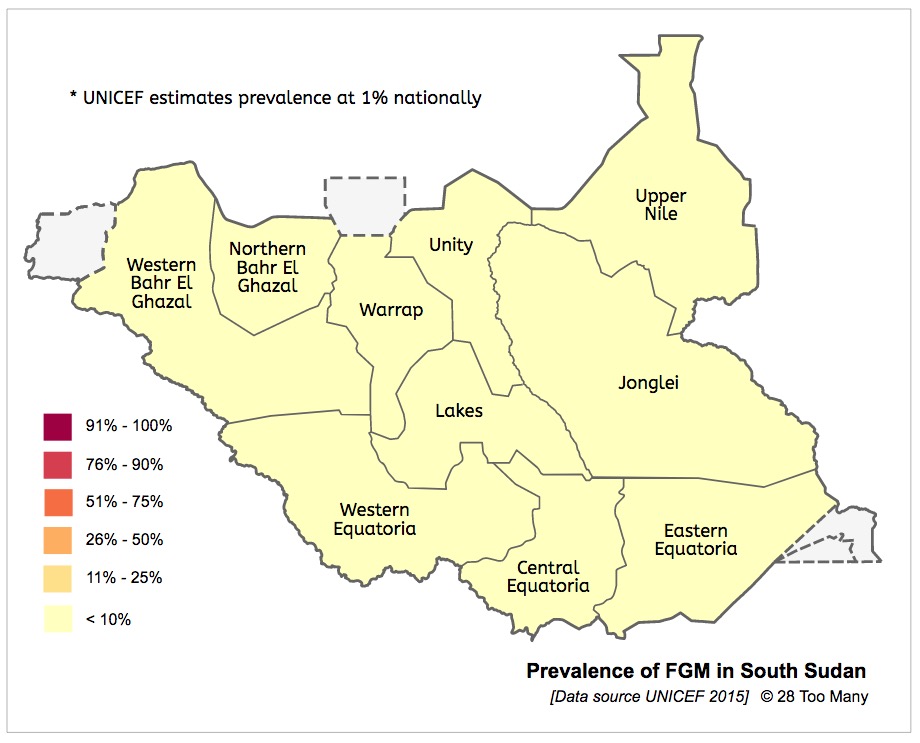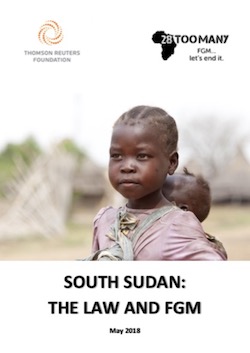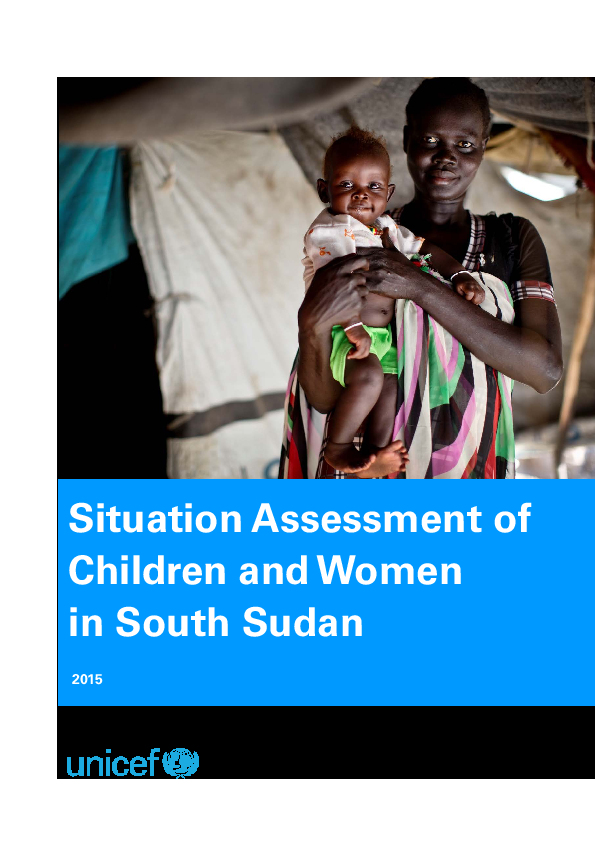Home | Research & Resources | South Sudan
Key Findings
UNICEF has previously reported prevalence among women aged 15–49 years in South Sudan at 1%.
There are no recent surveys to confirm this figure.
Distribution of FGM/C across South Sudan
In 2015 the United Nations Population Fund estimated that almost 32,000 women in South Sudan had been affected by gender-based violence in the two years since conflict broke out. As well as victims of sexual and physical violence, victims of FGM/C and child marriage were included in this estimate.
UNICEF previously reported the prevalence of FGM in South Sudan to be 1% among women aged 15–49, but there are no recent surveys to confirm this figure.
FGM/C has been reported in both Christian and Muslim communities, particularly in the northern regions of the country, including Bahr el Ghazal and Upper Nile, both of which border Sudan, where the prevalence of FGM/C is 86.6%. These are also the regions where camps for displaced Sudanese are located, and it is therefore likely that this accounts for the higher prevalence in these regions.
FGM/C Legislation in South Sudan
Under the Transitional Constitution of the Republic of South Sudan (2011), laws that applied in the ten states of Southern Sudan before it separated from Sudan are still in force. In South Sudan, both the Penal Code Act 2008 and the Child Act 2008 criminalise FGM/C and, therefore, remain in force as per the Transitional Constitution.
The Child Act gives a comprehensive definition of FGM/C and criminalises all forms of FGM/C performed on children under the age of 18. The Penal Code does not specifically define FGM/C, but under Section 259 criminalises the practice and punishes anyone who ‘makes or causes a Female Genital Mutilation to be performed’ (at any age).
It is not known to what extent the laws against FGM/C under the Child Act or Penal Code have been used in South Sudan. There is an absence of information on any cases brought to court and their outcomes.
Development Indicators
Population
15,054,653 (28 May 2020 est.)
Infant Mortality
63.7 deaths per 1,000 live births (2019)
Maternal Mortality
1,150 deaths per 100,000 live births (2017)
HDI Rate
186 out of 189 countries (2018)



_cover.jpg)


_cover.jpg)